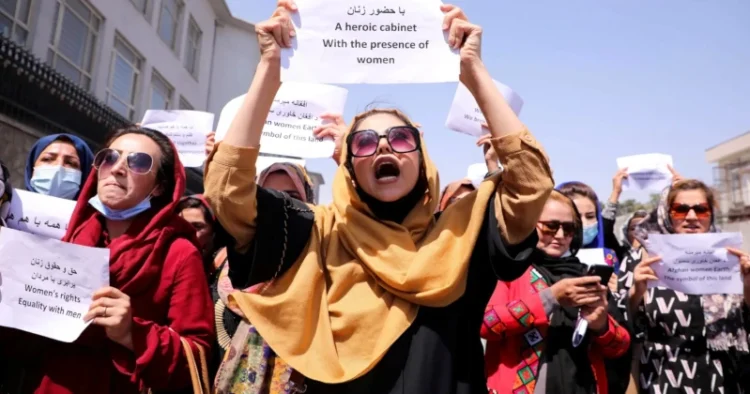The Afghanistan Women Journalist Association (AWJA) has conducted a survey about the situation of women journalists in Afghanistan within the past two years, wherein a majority of them said that “unemployment is one of their biggest challenges”.
Meena Habib, the head of AWJA said, “45 per cent of the participants said that unemployment is the biggest challenge ahead of women journalists.” “Five per cent of the participants are talking about the poverty of women journalists, while 10 per cent of the participants said lack of access to information is the biggest challenge for women journalists,” she said.
Moreover, some of the media-supporting organisations called on the Taliban to provide women journalists with all-out support. “We call on the Islamic Emirate to help women as much as it can in the fields of education, work and facilities,” Taj Mohammad Ahmadzada, one of the members of the AWJA, said.
The women journalists in Afghanistan also expressed their concerns about facing an uncertain future and emphasised that they are struggling with the working environment.
“In many conferences, wherever women are invited, we go there but we face double standards. The security forces do not allow women to enter the conference,” Hajar Jafari, a journalist, said. “Females are facing many challenges compared to males. Women cannot get access to proper information in press conferences,” said Marriam Madadi, another journalist.
Under the Taliban regime, at least 52 per cent of visual media outlets have ceased operations in Afghanistan over the past two years, Khaama Press reported. The Media Support for Afghanistan’s Free Media (NAI) recently announced that more than half of the visual media outlets in the country have remained inactive.
After the Taliban took control of Afghanistan on August 15, 2021, press freedom in the country has taken a backseat, with several restrictions put into place for journalists. Moreover, according to local media reports, after the political change in the country, 94 per cent of women journalists have become unemployed due to restrictions on their work.
(with inputs from ANI)




















Comments